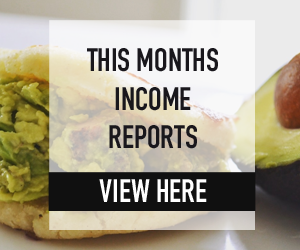Blockchain technology has become a buzzword in recent years, with its potential to revolutionize various industries. While commonly associated with cryptocurrencies, blockchain has many other use cases, including the public sector. In this blog post, we will explore how Colombia is utilizing blockchain technology in its public services. As an expert on Colombia, I will delve into the nuances of the country’s implementation of blockchain and its impact on the government and citizens.
What is blockchain technology?
Before we dive into the specifics of Colombia’s use of blockchain in public services, let’s first understand what blockchain technology is. In simple terms, blockchain is a decentralized digital ledger that records transactions across a network of computers. Each block in the chain contains a cryptographic hash of the previous block, a timestamp, and transaction data. This makes it virtually impossible to alter the data, providing a secure and transparent way of storing and transferring information.
Why is blockchain technology gaining traction in the public sector?
The public sector is known for its slow adoption of new technologies. However, blockchain has attracted the attention of governments worldwide due to its potential to increase efficiency, transparency, and security. With the rise of digitalization, traditional paper-based processes in public services are becoming obsolete, making blockchain a viable alternative.
How is Colombia utilizing blockchain in its public services?
Colombia has been actively exploring blockchain technology in various areas of its public sector. One of the most significant initiatives is the implementation of blockchain in land registration. The Colombian National Registry, in partnership with the blockchain company RSK, has developed a platform called “Registro de Propiedad” (Property Registry). This platform uses blockchain to record and validate property transactions, making the process more transparent and secure.
The Colombian government has also utilized blockchain technology in its healthcare system. In 2019, the Ministry of Health launched a blockchain platform called “bien para la salud” (good for health), which aims to improve the supply chain of medicines. The platform allows for the tracking of medicines from the manufacturer to the consumer, reducing the risk of counterfeit drugs entering the market.
Furthermore, Colombia’s Central Bank has been exploring the use of blockchain in its payment system. The bank’s initiative, called “Project Jasper,” aims to create a secure and efficient payment system using blockchain technology. This could potentially reduce the cost and time associated with traditional cross-border payments.
What are the benefits of using blockchain in public services?
The implementation of blockchain technology in public services in Colombia has resulted in numerous benefits. One of the most significant advantages is increased transparency. As blockchain records are tamper-proof and accessible to all parties involved, it promotes trust and accountability in public services.
Moreover, blockchain technology can streamline processes and reduce bureaucracy, resulting in increased efficiency and cost savings. With the elimination of intermediaries and the automation of processes, blockchain can also reduce the risk of human error.
What are the challenges of implementing blockchain in public services?
While blockchain technology has shown promising results in the public sector, its implementation is not without challenges. One of the main barriers is the lack of regulations and standards. As blockchain is a relatively new technology, there is a need for clear guidelines and policies to ensure its proper use and integration with existing systems.
Additionally, the cost of implementing blockchain technology can be a hurdle for governments, especially in developing countries like Colombia. The initial investment in infrastructure and training can be significant, making it difficult for some public services to adopt blockchain.
How is Colombia addressing these challenges?
To overcome these challenges, the Colombian government is actively working towards creating a favorable environment for the implementation of blockchain technology. In 2018, the government launched a national blockchain strategy that aims to develop the necessary infrastructure and regulations to foster the use of blockchain in various sectors.
Moreover, the Colombian Blockchain Association was formed in 2017 to promote the use of blockchain technology in the country. It works closely with the government, private sector, and academia to educate and collaborate on blockchain initiatives.
Other ways people asked this question
– How is blockchain technology being utilized in the public sector in Colombia?
– What are the specific use cases of blockchain in Colombia’s public services?
– How has the implementation of blockchain technology impacted public services in Colombia?
– Are there any challenges in using blockchain in the public sector in Colombia?
– What is the future of blockchain technology in Colombia’s public services?
Other ways people asked this question
- Colombia’s use of blockchain in public services – an in-depth analysis
- The potential of blockchain technology in improving public services in Colombia
- Colombia’s blockchain revolution in the public sector
- Exploring the benefits and challenges of implementing blockchain in Colombia’s public services
- How is blockchain technology disrupting traditional public services in Colombia?














